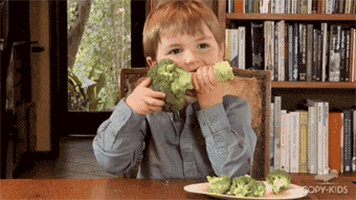
14 Jan Does My Child Need to Take Vitamins?
2 min. readEvery parent wants to do whatever they can to keep their child as healthy as possible. And since many parents take vitamins regularly to help maintain their health—a lot of parents understandably want to know if they should be giving their children vitamins as well. After all, there are plenty of kids’ vitamins out there, ranging from Flinstones to candy-shaped vitamins and gummies.
However, while vitamins for kids may be common, they aren’t really necessary. In fact, most experts agree that the best way for kids to get all of the vitamins and nutrients that their bodies require is to get them through their actual diet. A balanced, healthy diet filled with dairy, fruits and vegetables, proteins and whole grains is the most effective way to make sure that children are getting the vitamins their bodies need.
However, this is not true for every child. Kids who are picky eaters who aren’t getting enough nutrients can benefit from vitamins. Simply put, if your child is only eating chicken nuggets, they likely aren’t getting all of the vitamins they need—and can benefit from a multi-vitamin. Kids who eat lots of fast food or processed foods and those who drink a lot of carbonated sodas can also benefit from vitamins as sodas can actually leach vitamins and minerals from your child’s body.
If you decide to give your child vitamins, a kid’s multi-vitamin can be a good option—but it is best to give children specific vitamins if you know what they need. You should never give your child adult-servings of vitamins, as megavitamins (large doses) aren’t typically suitable for children.
If you are looking for specific foods to give your child that will provide them with the nutrients they need, here are a few that are great for certain vitamins.
- Fruits that contain vitamin C: grapefruit, oranges, cantaloupes, kiwi, mango, pineapple
- Veggies that contain vitamin A: carrots, spinach, broccoli, bell peppers, sweet potatoes
- Fruits & veggies that contain potassium: apricots, bananas, celery, tomatoes, winter squash
- Foods for calcium & vitamin D: milk, yogurt, cheese, kale, salmon, tuna, cereals, orange juice
- Foods that are high in iron: red meat, eggs, clams, chickpeas, pumpkin seeds, lentils
If you have questions about vitamins for your children or have any other questions about your child’s health, simply call us here at Continuum Pediatrics at 817-617-8600 to schedule an appointment.

